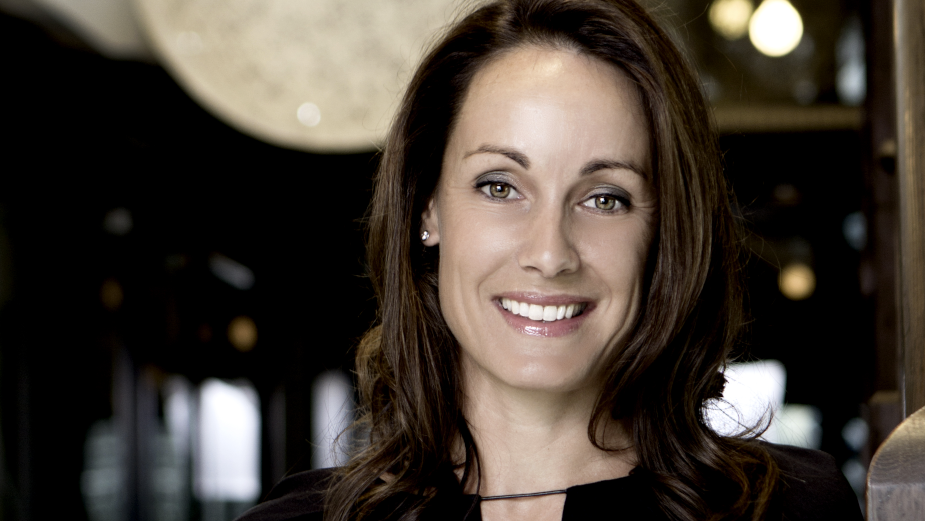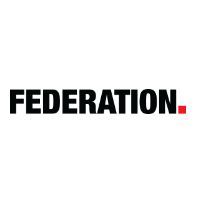
‘The Creator Collective’: The Next Big Thing in Creative Resourcing

There’s a revolution happening in the creative world, and this global pandemic is oxygen to the fire.
Companies are scrambling to become leaner, faster and more adaptable to change than ever before, which means overhauling the way we work and recruit is no longer a choice. It’s an absolute necessity. Operating cycles are shorter and project-driven. Budgets are strapped. Though there’s an overflow of seasoned creative talent on the market, with all eyes on the bottom line, companies are reluctant to hire full-time employees while business realities keep changing.
So, when recruitment and agency models only offer a traditional approach to resourcing, how do we deliver in a world that’s now far from traditional and looks unlikely to return?
For entrepreneurs Natasja Barclay and Andy Robilliard, the answer wasn’t to tweak the existing model. It was to build an entirely new one.
Curation and interdependence are key
The business-savvy duo recently launched JUNGLE, a network of senior independent strategic, creative and production specialists focused solely on short-term contracts and projects for New Zealand organisations.
“We’re not recruiters,” explained Natasja, who leads JUNGLE’s business development. “We bring external talent into a business and build a mini internal creative agency for a set time and scope of work. Companies with little or no marketing resources can scale up or down, and with the flexibility to engage just the people they need for a particular project. Be that a single person or an entire team.”
JUNGLE’s A-listers span creative directors, writers, designers and brand strategists to producers, data analysts and web designers. In curating teams specific to each brief and project, the company’s business model mirrors the interdependent ecosystem found in nature - inspiring the brand’s name.
“You shouldn’t just look at each individual’s skills and attributes. It’s just as important to ensure they work well together,” added Andy, responsible for JUNGLE’s creative and production services. “We connect specialists from different disciplines so they’re greater than the sum of their parts. It’s creative alchemy that means a better, faster way to bring projects to market.”
Clients pay only for the talent cast and hours incurred on an assignment, not agency overheads, so the approach is also a cost-effective one.
The pair themselves blend both yin and yang. With credentials in organisational psychology and a flair for analysing human behaviour, Natasja’s held plum roles across management consulting, executive headhunting and ad-land. Twenty years building agency teams for big brands has given Andy a ‘maker’s’ mindset and sensitivity. A mutual friend found their idea for a new business uncannily similar, connected the two and JUNGLE was conceived over a coffee.
Unrivalled times drive global demand
While the creator collective has yet to hit its stride in New Zealand, the business model has been on the rise internationally for some time.
Tired of traditional recruiters who rely largely on CVs and search algorithms, and let down by in-housing talent set-ups that fail to live up to expectations, companies in the US, UK, Europe and Asia have been after new ways to connect with the multitalented creatives who can help them crack increasingly complex business problems.
In the last few years, a range of on-demand platforms and consultancies such as We Are Rosie, Working Not Working, Blkbk, Credo, Comet and others have emerged in response. We Are Rosie alone boasts a client base that includes LinkedIn, IBM, P&G, AT&T, Bloomberg, Twitter, Bumble, Hilton Hotels and six agency holding companies. France’s Comet clients can now build their own freelance teams using the company’s CometFleet product. Here in New Zealand, 80% of businesses say their creative and media agency relationships are now up for review, according to a recent survey by IAB.
Covid’s simply accelerated the shift.
Clearly, the need for big ideas and fluid approaches has never been greater, with companies forced to rethink their planning cycles, teams and the kind of work that will get noticed - and net major revenues. Yet Natasja and Andy believe recruiters are still ‘speed-dating’ candidates in a classic set-up; matching individual skillsets to conventional job descriptions before racing onto the next. Recognising a psychological lens and interrogation of the real business need was lacking in New Zealand, JUNGLE has jumped in the gap.
“Companies often brief in a certain role they think they have to fill. We challenge that, unlock what’s truly needed and find people who are the best fit - not only in skillset and experience, but chemistry as well. Connect the right people as a team and they spark off each other and make magic,” Natasja pointed out.
In-housing and agencies not the answer
Of course, in-housing and agency models have tried to crack these challenges for a while now. Neither has been entirely successful.
In building their own in-house creative teams, companies can find it tough to attract top talent - who often get bored working on the same brand 24/7 - and to create the kind of culture needed to keep them. To many corporates, the world of independents may seem complex and confusing. The necessity and nuance of production and project management also eludes them. The upshot? The work is underwhelming.
Large, networked agencies with traditional resourcing models often struggle too. As lines blur between advertising, media, marketing and across clients’ industries, it’s harder to crack complex business problems with the same team on every brief. Especially when companies prefer to have specialists who can tackle specific projects ‘on-tap’ and work with thinkers, creatives and makers from other agencies and partner teams as well as their own.
The future is hybrid
For Natasja and Andy, what makes the creator collective model a stand-out however isn’t just the unconventional thinking and more effective results it offers companies - it’s the fulfilment it brings those doing the work, too.
“The people we represent are at the top of their game. They don’t want the agency lifestyle anymore. Most are doing really nicely, but miss the buzz of working with a team,” explained Andy.
What’s more, the duo argues that instead of being squeezed into client-side or agency roles with a single focus, talent is free to cultivate the full scope of their creative genius.
As business challenges grow more complex and span ever-more-elaborate brand ecosystems, New Zealand companies will need these ‘hybrid’ people with multiple skills who can connect the dots across disciplines and technologies for a seamless customer experience. (Someone who’s both strategist and art director, or photographer and PR pro, for example.)
For the creative industry, this resourcing revolution could just be its saving grace - and the silver lining of the pandemic.










